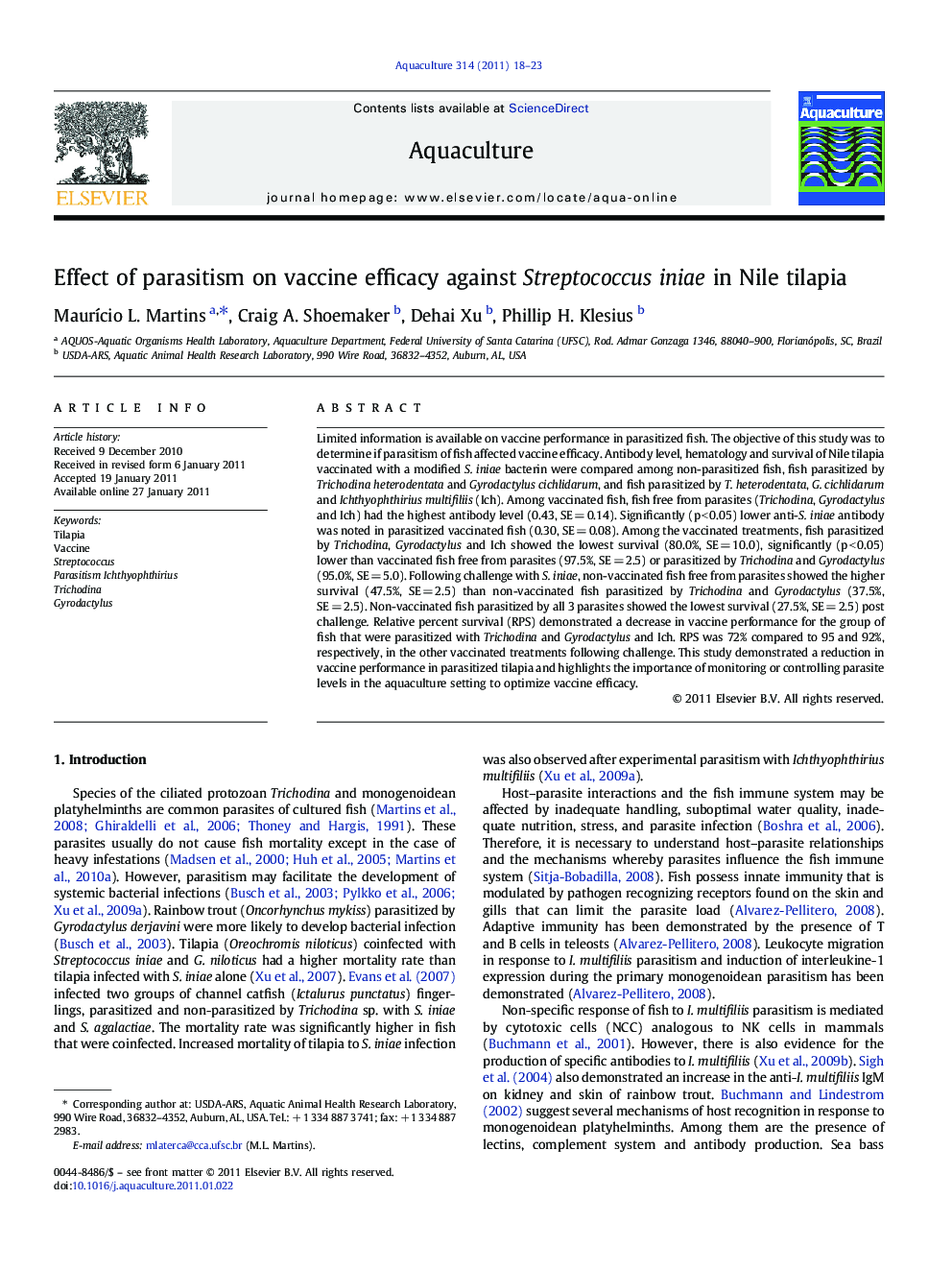| Article ID | Journal | Published Year | Pages | File Type |
|---|---|---|---|---|
| 2423096 | Aquaculture | 2011 | 6 Pages |
Limited information is available on vaccine performance in parasitized fish. The objective of this study was to determine if parasitism of fish affected vaccine efficacy. Antibody level, hematology and survival of Nile tilapia vaccinated with a modified S. iniae bacterin were compared among non-parasitized fish, fish parasitized by Trichodina heterodentata and Gyrodactylus cichlidarum, and fish parasitized by T. heterodentata, G. cichlidarum and Ichthyophthirius multifiliis (Ich). Among vaccinated fish, fish free from parasites (Trichodina, Gyrodactylus and Ich) had the highest antibody level (0.43, SE = 0.14). Significantly (p < 0.05) lower anti-S. iniae antibody was noted in parasitized vaccinated fish (0.30, SE = 0.08). Among the vaccinated treatments, fish parasitized by Trichodina, Gyrodactylus and Ich showed the lowest survival (80.0%, SE = 10.0), significantly (p < 0.05) lower than vaccinated fish free from parasites (97.5%, SE = 2.5) or parasitized by Trichodina and Gyrodactylus (95.0%, SE = 5.0). Following challenge with S. iniae, non-vaccinated fish free from parasites showed the higher survival (47.5%, SE = 2.5) than non-vaccinated fish parasitized by Trichodina and Gyrodactylus (37.5%, SE = 2.5). Non-vaccinated fish parasitized by all 3 parasites showed the lowest survival (27.5%, SE = 2.5) post challenge. Relative percent survival (RPS) demonstrated a decrease in vaccine performance for the group of fish that were parasitized with Trichodina and Gyrodactylus and Ich. RPS was 72% compared to 95 and 92%, respectively, in the other vaccinated treatments following challenge. This study demonstrated a reduction in vaccine performance in parasitized tilapia and highlights the importance of monitoring or controlling parasite levels in the aquaculture setting to optimize vaccine efficacy.
